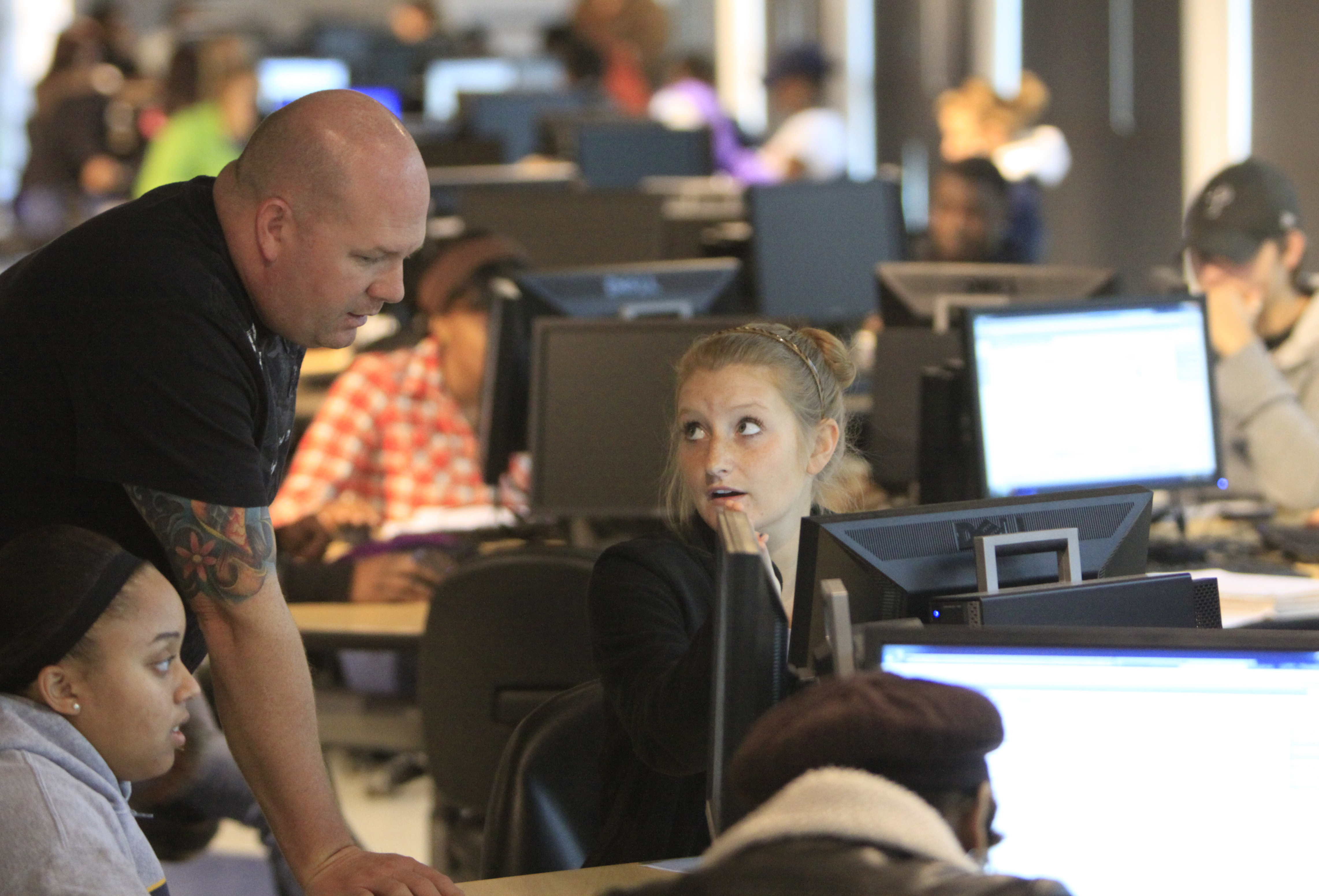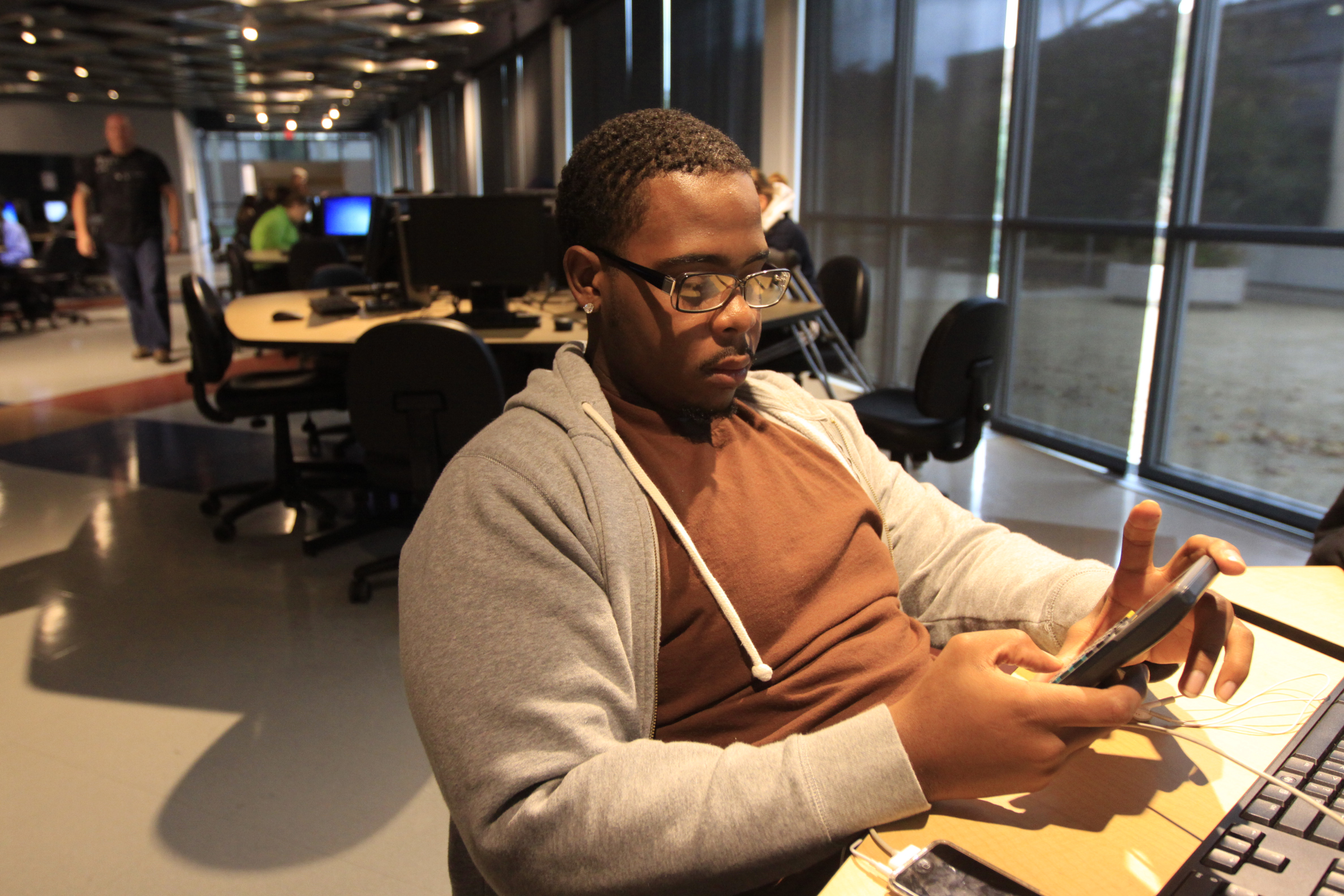UTC STIMULUS FUNDS 2009-11Department Funding Percentage of totalAcademic affairs $10.33 million 40 percentAthletics $682,683 2.6 percentStudent development $1.24 million 4.8 percentFinance, operation and IT $1.85 million 7.2 percentPhysical plant $2 million 7.7 percentInstitutional capital projects $8.16 million 31.6 percentChancellor $342,829 1.4 percentUniversity advancement $656,630 2.5 percentScholarships $555,000 2.2 percentTotal stimulus: $25.82 millionSource: University of Tennessee at Chattanooga
In the last couple of years, students at the University of Tennessee at Chattanooga benefited from more part-time faculty, scholarships and even a new math lab, all thanks to federal stimulus money.
From fiscal year 2009 to fiscal year 2011, UTC received $25.8 million to spend on things that supported its educational mission, said Richard Brown, vice chancellor of finance and operations at the school.
The majority of the money, about 40 percent, went to academic affairs, with almost $5 million used to hire lecturers and adjunct faculty, he said.
"While we were eliminating vacant positions and with hiring freezes, we were able to hire part-time faculty and staff to allow for continued enrollment growth," said Brown.
That meant better availability for classes in heavy demand and smaller classes in some sections, as well.
By Friday, UTC officials weren't able to provide an exact number of positions filled with stimulus money and how many were retained once the funds ran out.
But Lyric Visage, 25, who transferred to UTC from Cleveland State Community College in 2007, said she can tell the stimulus money made a difference.
"[The money] opened up more classes, like a teaching-reading class," she said, "I've also noticed they're repaving some parking lots and [adding] more custodians."
This year's freshman class was the largest in the school's history with 2,171 students. Overall enrollment stands at 11,429, a 6 percent increase over last year.
The University of Tennessee system received $219 million in stimulus funding, and Gina Stafford, the system's spokeswoman, said officials are developing a complete summary of usage on all campuses, which is expected to be completed by the board of trustees meeting this week.
"At this point, only rough estimates are available," she wrote in an email.
"Obviously, stimulus funding was important to our ability to make carefully considered budget cuts over a two-year period to prepare for and better manage the impact of reduced state appropriations," she said.
UTC spent $8 million on capital improvements.
"When you are in these economic downturns you will seldom be able to find a million dollars to renovate a building," Brown said.
Among other investments made at UTC was Math Plaza, a hallway in the Maclellan Gym turned computer lab, to help students complete lower-level math courses using special computer-based instruction. It's a $400,000 project students said is money well spent.
"It's very nice," said Candace Caruthers, 18, as she worked on intermediate algebra. "It's a good way to use the money; I might end up smarter," she said with a smile.
What her friend Jailyn Cook, 19, likes about the math lab, which has 102 computers, is that she can get one-on-one instruction with her teachers.
"We can come and do our homework here and get help; it's easier," said the first-year student.
More than 600 students use the lab in a given day, according to school officials.
At UTC, stimulus money also was used for a $225,000 school website transformation and $167,000 to buy 12 battery-powered/electric vehicles and set up charging stations. Brown said that will help lower the school's gasoline costs.
"We were able to provide operating support. We bought computers, new technology, microscopes and pianos for instruction," said Brown.
"All those things that would normally come through an allocation process. We didn't have state dollars, but we have these stimulus funds to allow us an easier transition as the economy kind of reinvigorates itself," he added.
The school will have all stimulus funds spent by Dec. 30, Brown said.
The challenge moving forward without that money will be balancing the growth of the university with cost, he said.


